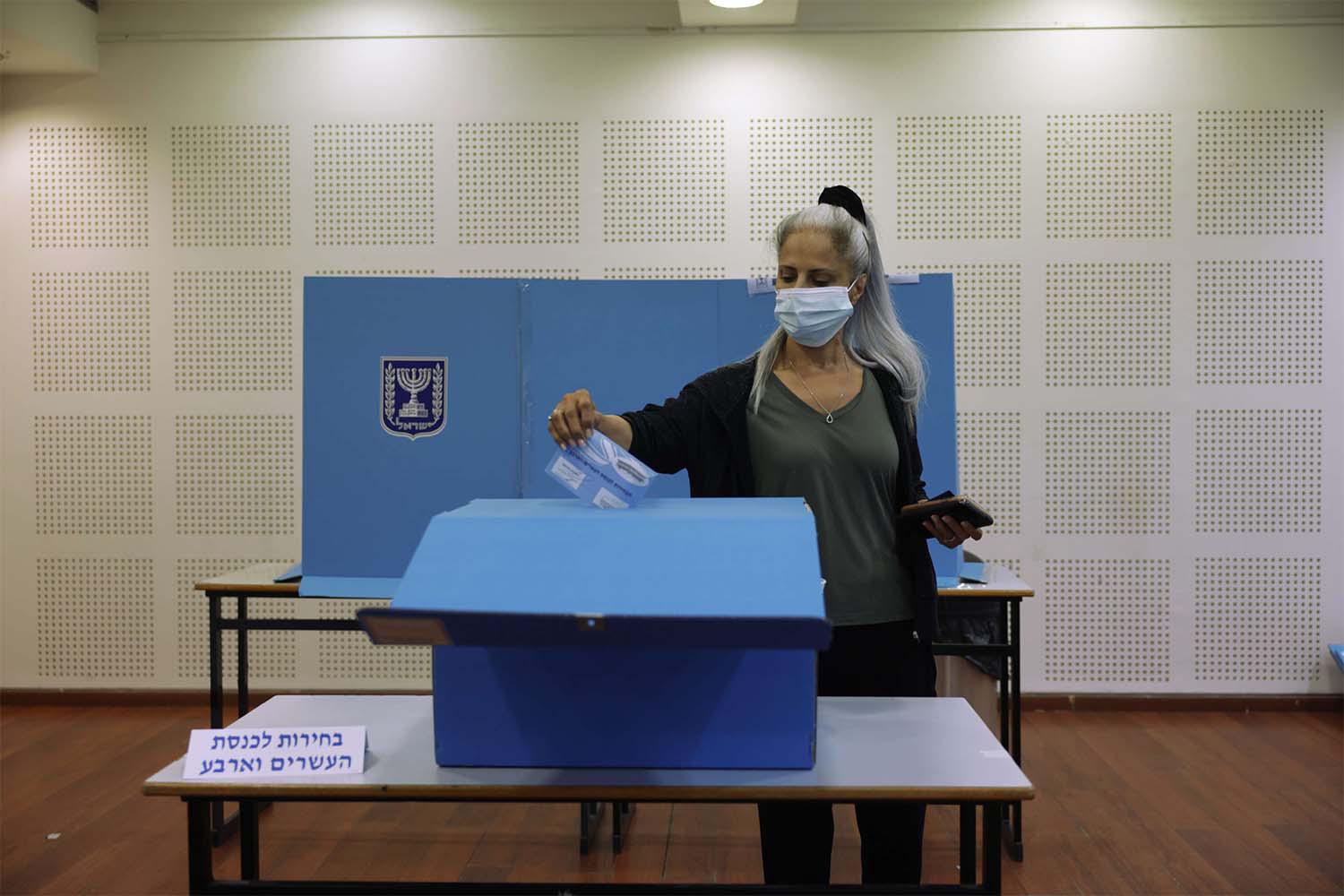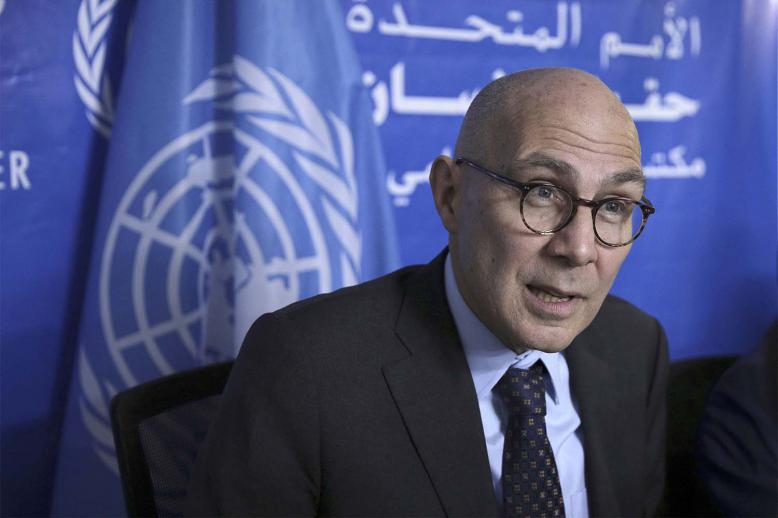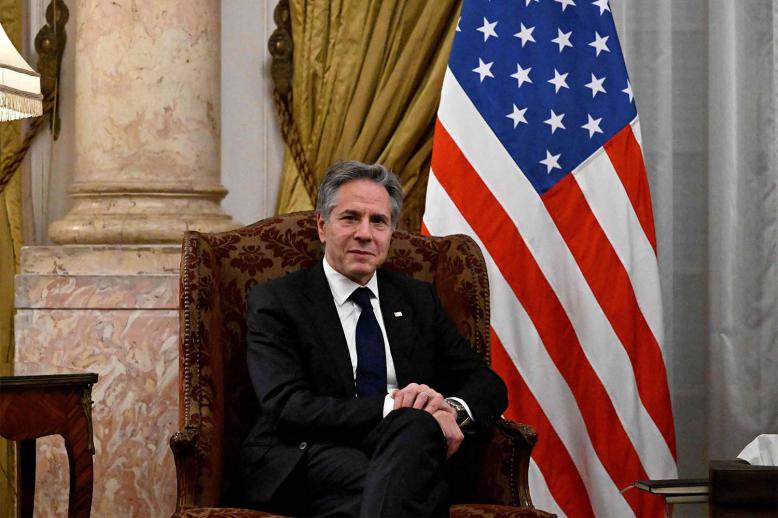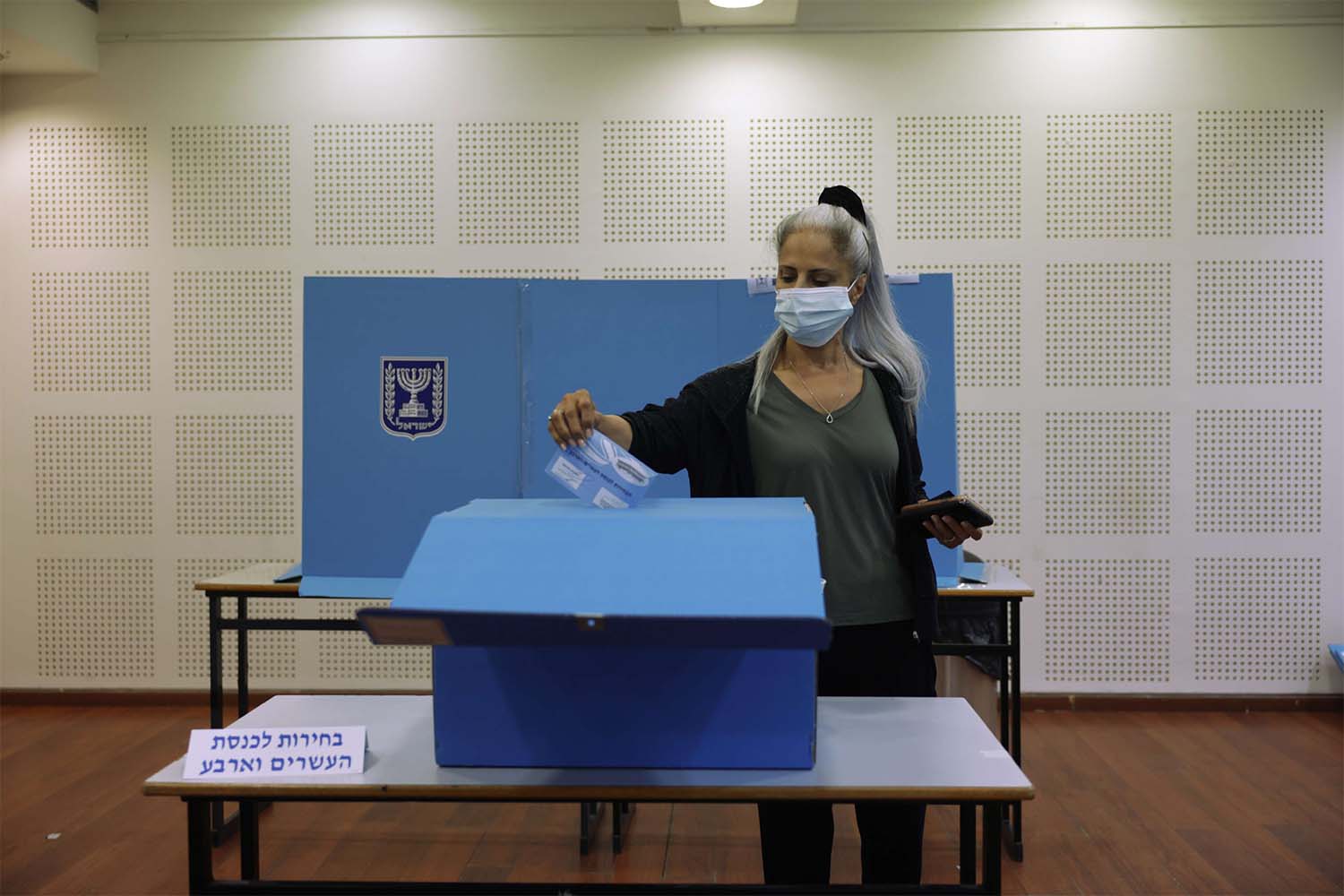Israelis vote in fourth election in two years
JERUSALEM - Israelis began voting on Tuesday in a fourth election in two years, with Prime Minister Benjamin Netanyahu hoping a rapid COVID-19 vaccine rollout will win him another term. With coronavirus precautions in place at polling booths across the country opinion polls show the race too close to call.
Netanyahu is Israel's longest-serving head of government but is also on trial on corruption charges. He denies any wrongdoing.
The dominant political figure of his generation, Netanyahu, 71, has been in power since 2009.
But the Israeli electorate is deeply polarised, with supporters hailing him as "King Bibi" and opponents holding up placards calling him "Crime Minister".
Opinion polls indicated an uptick for Netanyahu's right-wing Likud party in the campaign's final days, giving a prospective coalition of conservative and ultra-Orthodox Jewish parties around 60 seats in the 120-member parliament.
Yair Lapid, a former finance minister who heads the centrist Yesh Atid party, has emerged as Netanyahu's main challenger.
On the campaign trail, Netanyahu has highlighted his role in securing millions of vaccine doses from Pfizer Inc and turning Israel into what he dubbed a "vaccination nation".
Nearly half of Israelis have been fully inoculated at a pace that drew international praise for Netanyahu. But there have also been calls for Israel to do more to ensure Palestinians in the occupied West Bank and Gaza receive vaccines.
Israel's swift vaccine roll-out allowed it to reopen much of its economy before the election.
Posting a video of his visit to a Jerusalem hospital on Monday, Netanyahu wrote: “Today we are the first in the world to return to life and smile again.”
But not all Israelis are convinced, with many accusing him of political misjudgements early in the pandemic that compounded the economic pain of lockdowns.
In Tel Aviv's Rabin Square, Yonatan Meir, 34, said he would judge Netanyahu over "his whole era", not the vaccine rollout.
"Actually, it didn't affect my decision because I know that I won't choose him," he said. "But I think that the majority of people were very affected and were very impressed by his management of the whole crisis."
Coalition-building
Taking to social media on election morning Netanyahu urged his supporters to bring friends and relatives to the polling stations to ensure "a strong right-wing government".
Another possible, but less likely, outcome is an alliance among right-wing, centrist and left-wing parties opposed to a Netanyahu-led government.
The polls showed such an 'anyone but Netanyahu' alliance likely falling short of a ruling majority.
Polling stations opened at 7 a.m. (0500 GMT) and will close at 10 p.m. (2000 GMT), when exit polls could point to voting trends, if not a clear winner.
Netanyahu's current government, a power-sharing alliance with centrist Defence Minister Benny Gantz, collapsed in December, some seven months after it was established.
Gantz's Blue and White party is forecast to win barely enough votes to get into parliament, after he angered many of his supporters by agreeing to serve under an indicted prime minister.





